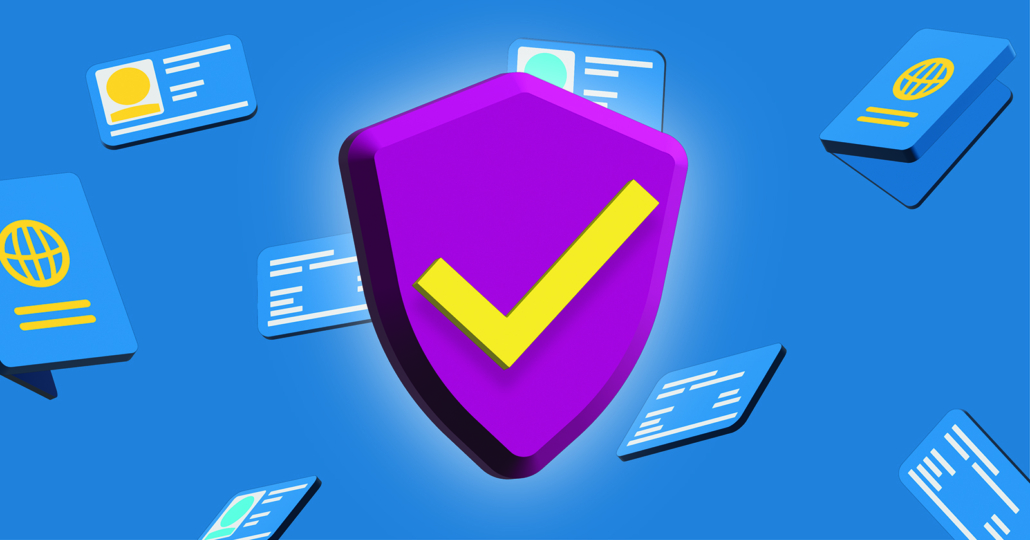In today’s digital age, protecting personal data has become more critical than ever. With the widespread use of apps for various purposes, it’s essential to understand how to securely store and share information to maintain control over your data. In this article, we will explore secure practices for storing and sharing personal data on apps. We will discuss encryption options, secure cloud storage solutions, and tips for securely sharing sensitive information. By implementing these practices, you can enhance the security and privacy of your personal data.
Encryption Options for Personal Data

Encryption is a fundamental security measure that transforms data into an unreadable format, making it inaccessible to unauthorized individuals. Here are some encryption options to consider for securing personal data:
- End-to-End Encryption: End-to-end encryption ensures that data remains encrypted throughout its entire journey, from sender to recipient. It means that only the intended recipient can decrypt and access the data. Apps like Signal, WhatsApp, and Telegram use end-to-end encryption for their messaging services, providing a high level of security for private conversations.
- Device Encryption: Device encryption protects the data stored on your device, such as your smartphone or computer. By enabling device encryption, you ensure that even if your device falls into the wrong hands, the data remains encrypted and unreadable. Both iOS and Android devices offer built-in encryption options that you can enable in the settings.
- File and Folder Encryption: For specific files or folders containing sensitive information, you can use file and folder encryption. Various encryption software tools are available that allow you to encrypt specific files or folders, adding an extra layer of protection. VeraCrypt and AxCrypt are examples of popular encryption tools for files and folders.
By leveraging encryption options, you can significantly enhance the security of your personal data, both during storage and transmission.
Secure Cloud Storage Solutions

Cloud storage has become a popular way to store and access data across multiple devices. However, it’s crucial to choose secure cloud storage solutions that prioritize data privacy. Here are some considerations for secure cloud storage:
- Strong Encryption: Opt for cloud storage providers that offer strong encryption for data at rest and in transit. Look for providers that use robust encryption algorithms and have a solid track record of prioritizing user privacy. Services like Dropbox, Google Drive, and Microsoft OneDrive offer encryption options and protocols to safeguard your data.
- Two-Factor Authentication (2FA): Enable two-factor authentication for your cloud storage accounts. 2FA adds an extra layer of security by requiring a second form of authentication, such as a unique verification code sent to your mobile device, in addition to your password. This helps prevent unauthorized access even if your password is compromised.
- Client-Side Encryption: Consider using client-side encryption tools for added security. These tools encrypt your data on your device before it’s uploaded to the cloud storage provider. With client-side encryption, even if the cloud storage provider experiences a data breach, your encrypted data remains secure. Cryptomator and Boxcryptor are popular options for client-side encryption.
When using cloud storage solutions, it’s important to choose reputable providers and implement security measures like strong encryption and two-factor authentication to safeguard your personal data.
Tips for Securely Sharing Sensitive Information

Sharing sensitive information through apps requires extra caution to ensure that the data reaches the intended recipient securely. Here are some tips for securely sharing sensitive information:
- Use Secure Messaging Apps: When sharing sensitive information, opt for secure messaging apps that offer end-to-end encryption. Apps like Signal, WhatsApp, and Telegram provide secure messaging features, ensuring that your conversations remain private and protected from unauthorized access.
- Password Protection: If you need to share sensitive documents or files, consider password-protecting them before sending them through apps. Use strong passwords and communicate the password to the recipient through a different communication channel, such as a phone call or in person.
- Avoid Public Wi-Fi: When sharing sensitive information, avoid using public Wi-Fi networks, as they can be vulnerable to data interception. Instead, use a secure and private network, such as your mobile data connection or a trusted Wi-Fi network with a strong password.
- Verify Recipients: Before sharing sensitive information, double-check that you are sending it to the correct recipient. Be cautious when selecting recipients from your contact list or entering email addresses manually to prevent accidental data sharing with the wrong individuals.
- Temporary File Sharing: If you need to share a file temporarily, consider using temporary file-sharing services that automatically delete the file after a specified period or after it has been accessed a certain number of times. Services like Firefox Send and One-Time Secret offer such features for secure temporary file sharing.
By following these tips, you can minimize the risk of unauthorized access and ensure the secure sharing of sensitive information through apps.
Conclusion
In conclusion, protecting personal data is paramount in today’s digital landscape. By implementing secure practicesfor storing and sharing information on apps, you can enhance the security and privacy of your personal data. Encryption options, such as end-to-end encryption, device encryption, and file and folder encryption, provide strong protection for your data. Secure cloud storage solutions with strong encryption, two-factor authentication, and client-side encryption further safeguard your information. When sharing sensitive information, use secure messaging apps, password-protect files, avoid public Wi-Fi, verify recipients, and consider temporary file-sharing options. By adopting these practices, you can maintain control over your data and mitigate the risks associated with storing and sharing personal information on apps. Remember to always stay informed about the latest security practices and be proactive in protecting your personal data in the digital realm.






